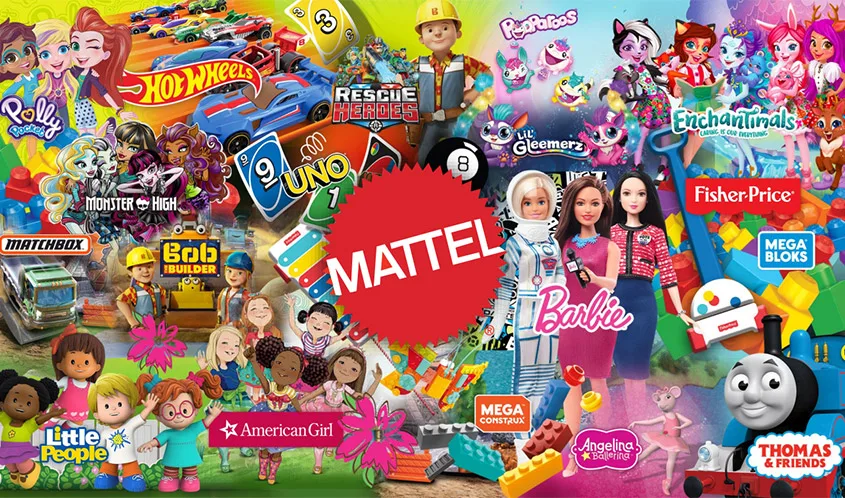Mattel is making progress, but there’s still a long road ahead — one that company leadership is well aware of. The El Segundo-based toymaker reported its first quarter earnings this evening, surprising analysts and watchers with better-than-expected performance thanks to smaller-than-expected overall losses. Net sales for the first quarter decreased 3% to $689.2 million compared to $708.4 million in 2018, while operating loss decreased to $131 million versus a loss of $276.6 million last year — largely due to the closure of Toys “R” Us in the U.S. The news has been met with enthusiasm from investors, with Mattel shares spiking 11% in after-hours trading.
“This was another strong quarter, demonstrating meaningful progress in the execution of our strategy, a significant improvement in profitability and a solid performance in our topline. The positive momentum exiting 2018 has continued and is reflected in our operating results, says Ynon Kreiz, chairman and CEO. While we are in a multi-year turnaround, we remain on track to achieve our goals to restore profitability and regain topline growth in the short-to-mid-term and capture the full value from our IP in the mid-to-long term. I continue to be inspired by the commitment and capabilities of our organization as we build shareholder value and transform Mattel into an IP-driven, high-performing toy company.”
On a call with investors, Kreiz reaffirmed that the short term goal is to achieve flat revenue after five years of decline. “This is not an easy task,” he said. The company has been reshaping its operations in an effort to restore profitability, closing or consolidating owned factories, and making staffing changes and cuts where appropriate. “It’s about cost structure and gross margin,” Kreiz says.
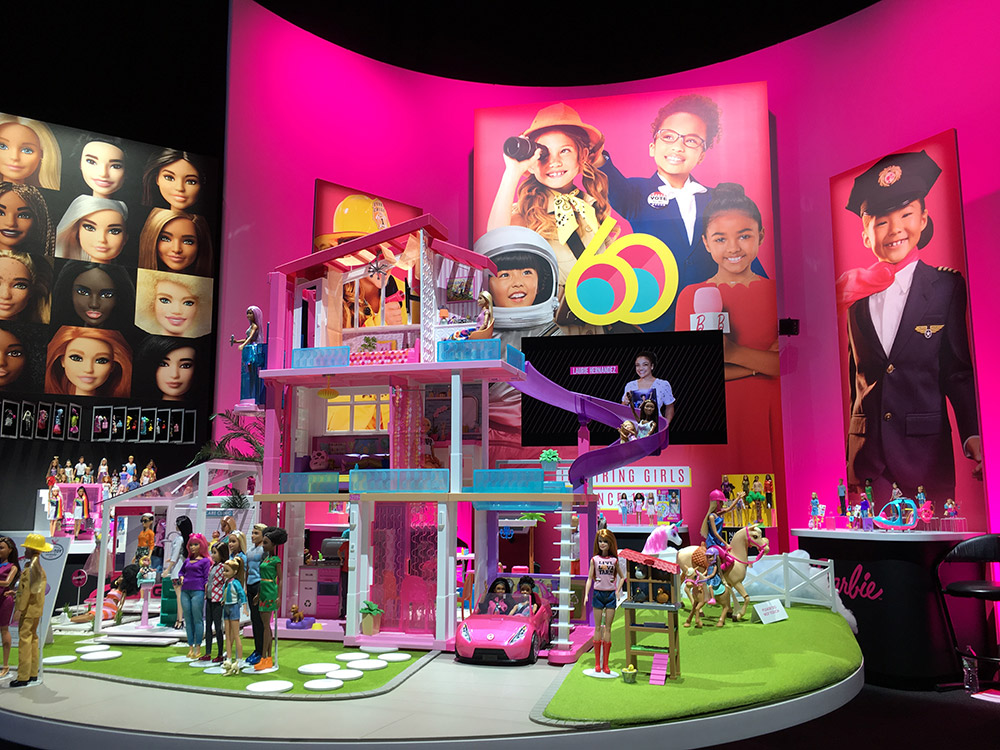
Barbie’s 60th Anniversary is Off to a Great Start:
Barbie experienced a 7% gross sales increase for the quarter, though the overall dolls category is down 2% due to continued losses in American Girl offset by additional growth from Polly Pocket. The company’s ongoing refocus of the Barbie brand is resonating with families, and 60th anniversary activations around the globe have helped to reestablish profile. Retailer support, such as oversized midway displays featured in Walmart stores have not only driven POS on in-house items, but on licensed Barbie goods such as apparel and accessories.
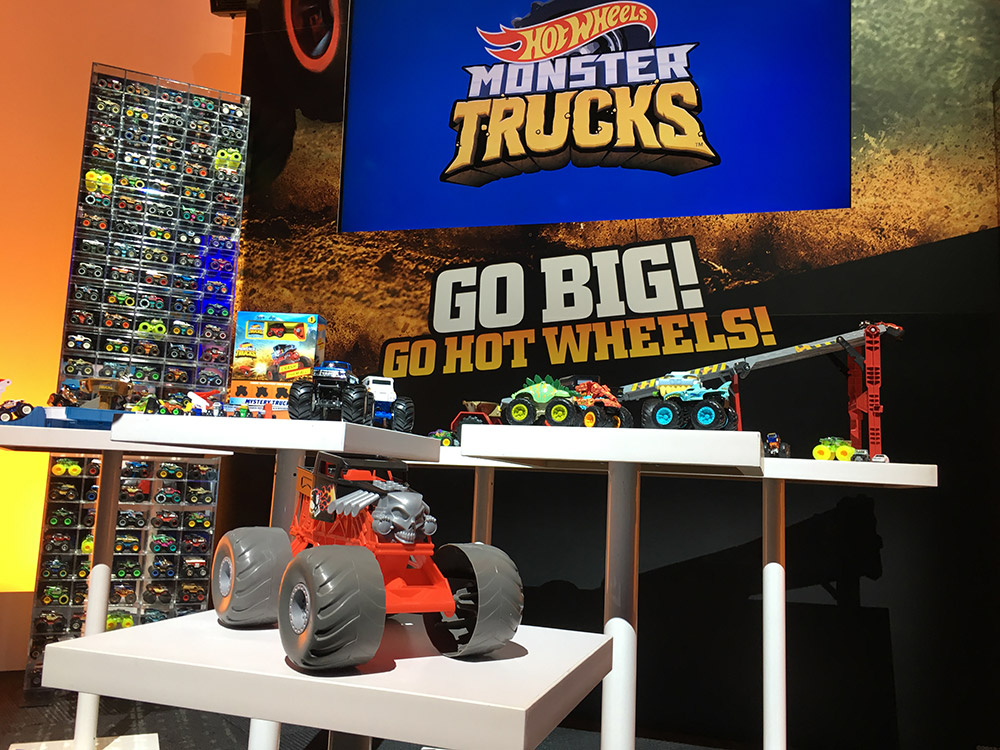
Hot Wheels… and Matchbox (!) Are on the Right Track:
Hot Wheels continues to dominate, achieving a 4% sales increase for the quarter. More surprising, the investor call revelation that Matchbox — a brand seldom mentioned and often felt to be ignored — saw a 13% increase for the quarter. Overall, the vehicles category was down 3%, still bogged-down by a continued decrease in demand for Disney•Pixar Cars product. Not mentioned on the call, Mattel very quietly dipped its toes into crowdfunding this week, offering fans the prospect of a premium Cars play set if more than 3,000 pre-orders are achieved by May 21. The approach mirrors Hasbro’s HasLab initiative.
“The consistency we’re seeing in Hot Wheels is very encouraging,” says Richard Dickson, Mattel president and COO. “And we’re experiencing great connectivity with consumers.” That connectivity includes the Hot Wheels Legends Tour, now in its second year, and the Hot Wheels Monster Trucks Live! Tour. Both events were cited as being key drivers of POS.
Fisher-Price, American Girl, and Thomas and Friends Are Off the Rails:
These three iconic brands cannot catch a break, and no one seems to know exactly why. Worldwide gross sales for infant/toddler/preschool was down 15%, with Fisher-Price and Thomas and Friends (a combined entry into Mattel’s “Power Brands” segment) were down 8%. While Thomas (which was down 13% last year) was barely addressed, Fisher-Price is currently at the center of much buzz due to the voluntary recall of the Rock ‘N Play sleeper, which is expected to have an impact of $27.2 million on the company. Fisher-Price had a great showing at Toy Fair New York earlier this year, with the relaunch of Rescue Heroes and refreshed lines of Little People and a new assortment of wooden toys.
“In the long-term, we believe the brand will remain trusted with parents,” says Kreiz. “We remain confident in the leadership, brand management and the product lineup to roll out later this year.”
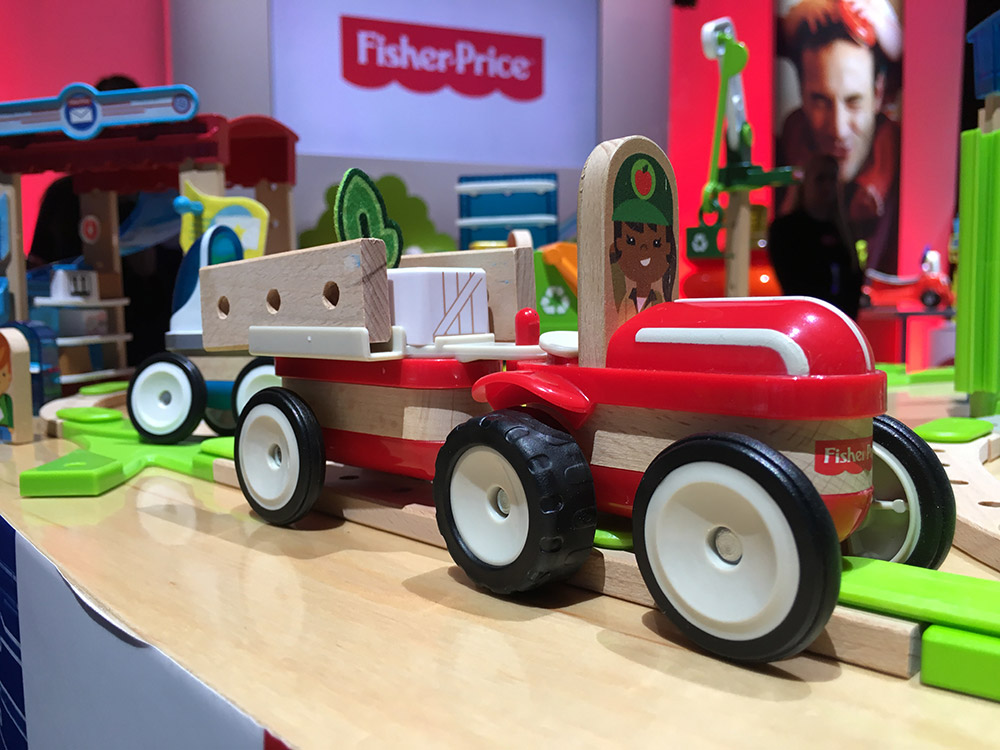
American Girl continues its steady decline, dropping a staggering 32% for both gross and net sales in the first quarter. The brand, which was down 28% in 2018, has faced increased competition in the 18″ doll category from brands such as Battat’s Our Generation, which are more widely available at more affordable price points. Additionally, American Girl opened store-within-a-store pop-ups in select Toys “R” Us locations just before the retailer filed for bankruptcy in 2017. What should’ve given American Girl a larger retail footprint ended up coming as a blow instead.
Kreiz says that there are major initiatives in the works for American Girl later this year, including new experiences slated for flagship stores in New York City and Chicago.
“This summer, some of the work on our plan will be revealed with a much broader merchandising and quantum strategy launching this fall. This will include new product introductions, in line architecture… and a completely new digital consumer engagement platform. All will be supported by comprehensive marketing plans,” he says.
The new plan also involves new YouTube content and collaboration with influencers, with “more details to be revealed closer to launch.”
American Girl is currently at the center of a live theatrical production and an upcoming film from MGM.
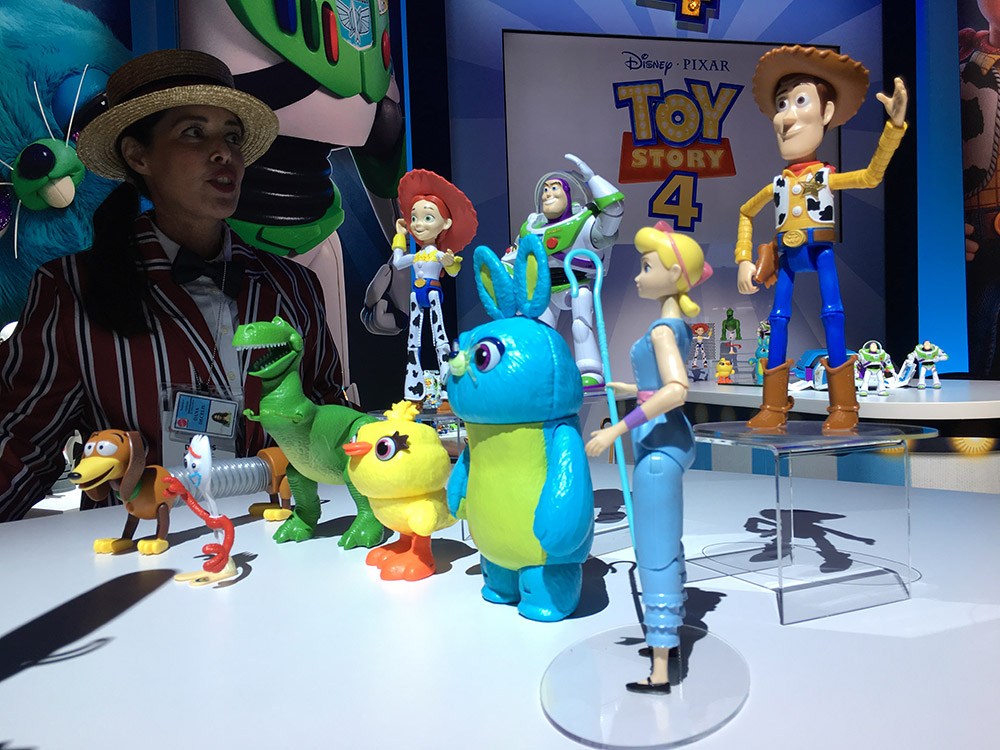
Jurassic World Goes Evergreen, Toy Story 4 Ramps Up, BTS Hits the Scene:
Sales in the combined categories of action figures, building sets, and games are up 18%. This includes sales of Jurassic World products and early shipments of Toy Story 4 toys. There was also growth in MEGA, which had seen declines in recent quarters, reflecting an overall slowdown in the construction category as a whole.
Jurassic World and Jurassic Park have become evergreen in recent years, with demand for dinosaur-themed product continuing even in non-movie years.
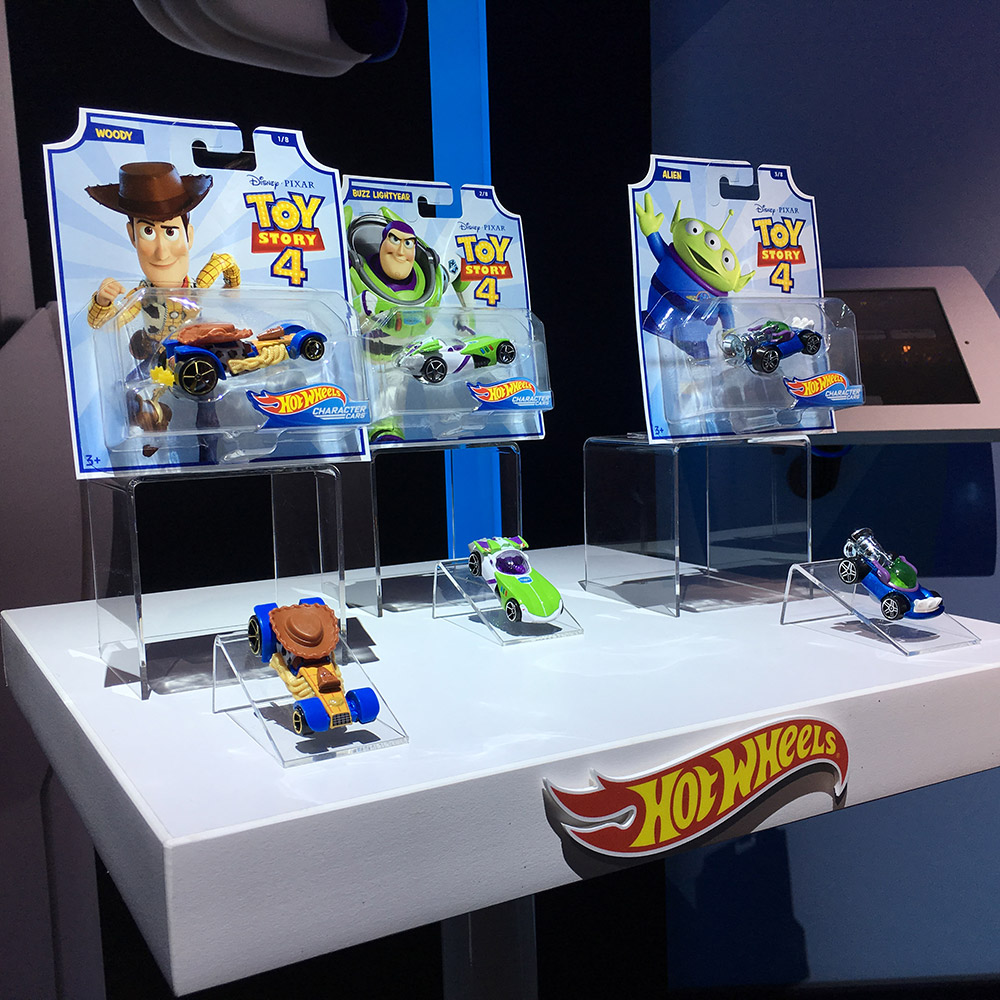
Meanwhile, Disney•Pixar’s Toy Story 4 is an extraordinarily important license this year. Mattel famously lost Disney Princess and Frozen to Hasbro, and the company has put much of its focus on Toy Story 4. In addition to offerings in the action figure aisle, Toy Story 4 is being worked across micro collectibles, Fisher-Price Imaginext, and Hot Wheels.
The other big license mentioned for future sales impact: Korean pop stars BTS.
Next year, Mattel will begin producing toys for another major license: Despicable Me.
A Big Bet is Still on Movies and TV:
Kreiz, a former television exec, points to the continued development of Mattel Films, along with the the slate of 22 television projects that were announced prior to Toy Fair as being key for company growth. The five feature films currently announced include View-Master and American Girl with MGM, Masters of the Universe with Sony, and Hot Wheels and Barbie with Warner Bros. Little is known about the television slate, aside from a promise of both live-action and animated series’ tied to Mattel’s in-house IP.
As to the level of success that can be achieved, a lot is yet to be seen. With a total of 27 projects announced, audiences still have yet to see a single frame from any of them.
Overall, a decent first quarter shows that Mattel is headed in the right direction, albeit slowly.
“We want to do things in the right cadence, the right order, and recognize that this is a multi-year turnaround that takes time,” Kreiz adds.

